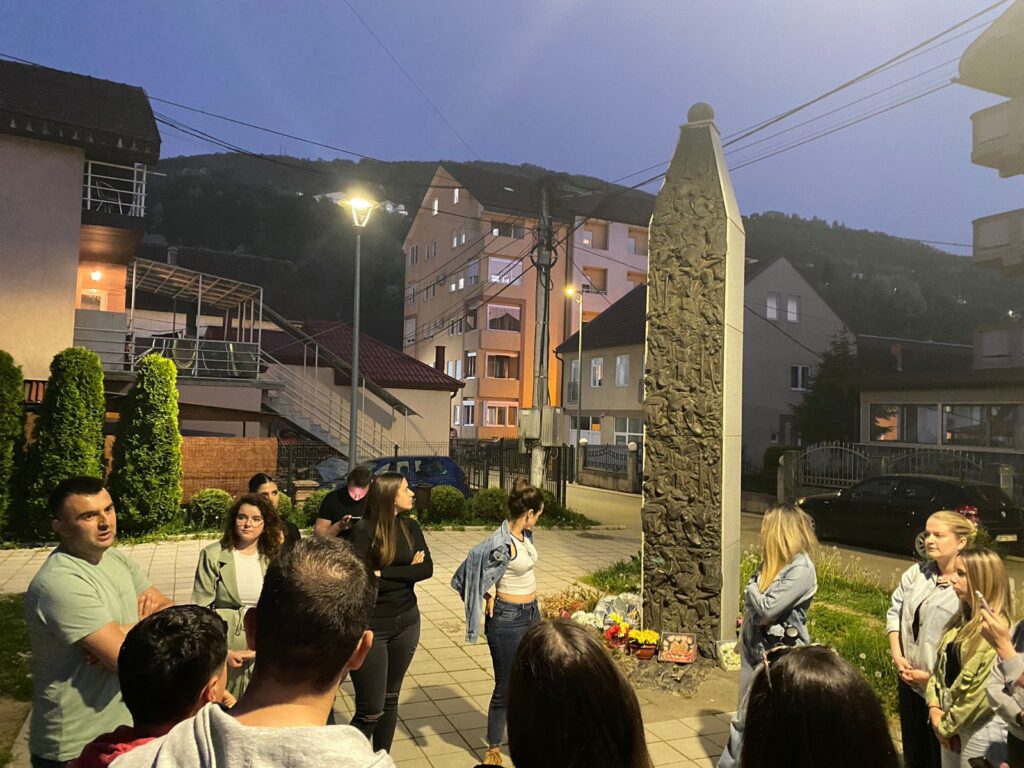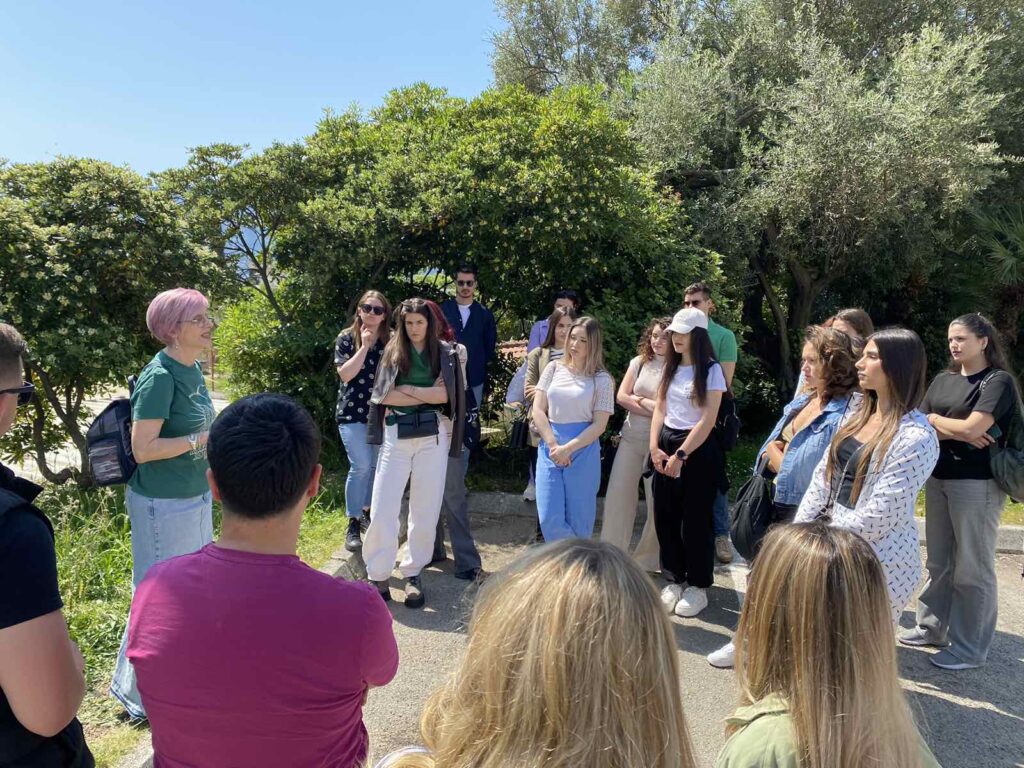The Centre for Civic Education (CCE) organized, from 13 to April 2024, a study visit for participants of the III generation of the Transitional Justice School, during which they visited the places of suffering in the territory of Montenegro and became familiar with specific locations associated with war crimes from the 1990s – Deportation, Morinj, Family Klapuh, Bukovica, Štrpci, Kaluđerski laz and Murino.
The first day of the study visit began in Herceg Novi, in front of the Security Centre, a place where non-governmental organizations traditionally commemorate the victims of war crimes known as Deportation. The journey then continued to the former military barracks in Morinj, which during the war in the 90s were turned into a camp for Croatian prisoners from the Dubrovnik-Neretva County. Ervina Dabižinović, coordinator at the NGO ANIMA, spoke with the participants of the School in Herceg Novi and Morinj about the details of these crimes and the activities that the NGO ANIMA also conducted to contribute to building of a culture of remembrance. The first day ended with a visit to the Obrad Cicmil bridge, where the Klapuh war crime was committed, and insight was given by Damir Suljević, programme associate at CCE.
On the second day, in Bukovica, Sabina Talović, civic activist and coordinator of the NGO Bona Fide, spoke to the School participants about the crime committed in that locality. This was followed by a trip to Bijelo Polje, where they visited the monument to the victims of the Štrpci crime, learning more details from Demir Ličina, a member of one of the families of the victims of that war crime.
On the third day, a visit to the monument to the victims of the NATO bombing in Murino was organized, in which civilians from that place were killed, and Milan Marković, president of the Murino NATO Victims’ Association, spoke about it to the participants of the School.
“Visits to the places of the suffering of victims of war crimes are very important because they represent the first step towards reconciliation and healing of the wounds caused by the wars of the 1990s. With such visits, we become witnesses to the immeasurable pain that crime victims and their loved ones went through, and are going through. By organizing such education, we protect them from oblivion and incorrect interpretations of history, with a promise to remember and do everything in out power to prevent such sufferings from happening again,” said Jelena Ćuković, a student at the Faculty of Medicine and a participant in the School.
“It is devastating that the facts about Montenegrin involvement in the wars of the 1990s are actively being hidden from our generations. I am glad to have participated in such an informative programme whose aim is reconciliation and not politicization of human suffering. Memorization and remembrance are our next steps on the road to reconciliation, because we must not leave in the dark those who do not know history, nor the families of the victims to think that this is only their struggle. Truth and responsibility must be the foundations of every healthy society“, says Brahim Kajević, a participant in the School.
After visiting these localities, a meeting was held in Podgorica with Siniša Bjeković, the Protector of Human Rights and Freedoms.
“Crime has a name and a surname, just the victim does. Nations are not judged, but individuals. If we had prosecuted crimes before our courts, there would have been no need for the work of the Hague Tribunal,” said Ombudsman Bjeković. “In confronting the past, we are turning to the future. Unfortunately, one of the dividing lines in our society is the unwillingness to face prejudices and the lack of information. This is a matrix that we have to break so that they are aware of our responsibility,” he concluded.
The programme of the Transitional Justice School, which aims to strengthen empathy and understanding towards the victims and to encourage reflection on the past and its impact on the present, concluded with a diploma ceremony where Jakov Milatović, President of Montenegro, Ekatarina Paniklova, UNDP Resident Representative in Montenegro, and Daliborka Uljarević, Executive Director of CCE, presented diplomas to participants.
The previous module included a series of lectures and debates with representatives of the civil sector, academia, and politicians.
The School is part of the project Education for the Future – Transitional Justice for Reconciliation which was supported by the regional project Support of the EU to Trust-Building in the Western Balkans, funded by the European Union (EU) and implemented by the United Nations Development Programme (UNDP).
Maja Marinović, Programme associate



